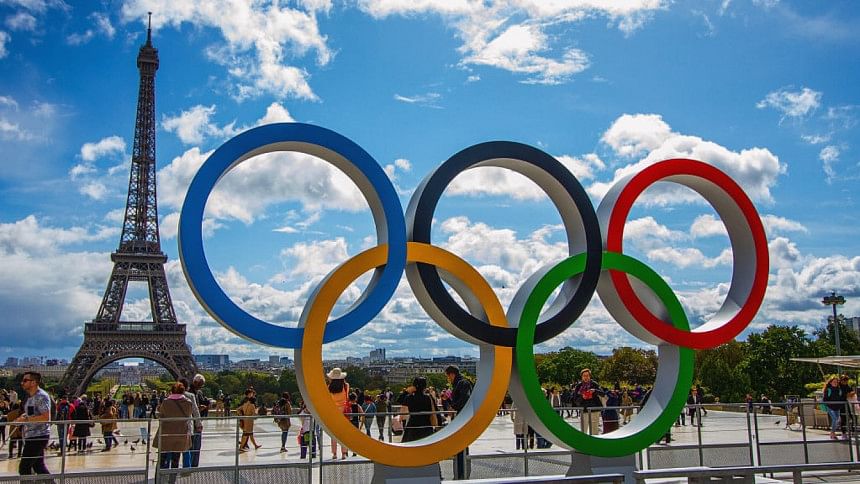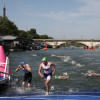France asks for foreign help for Olympics security: officials

France has asked its foreign allies to send several thousand members of their security forces to help guard the Paris Olympics, officials said Thursday, underlining the strains caused by the sporting extravaganza which begins in July.
"Several foreign nations are going to reinforce us in certain critical areas, such as dog-handling capabilities where the needs are enormous," an official at the defence ministry told AFP on condition of anonymity.
The official did not say how many foreign soldiers would be on French soil, but Polish Defence Minister Wladyslaw Kosiniak-Kamysz confirmed his country was joining "an international coalition established by France" for the Olympics.
An official in the French interior ministry said separately that Paris had asked 46 allies to send 2,185 police reinforcements.
Both officials played down the significance of the requests for foreign assistance.
"It's a classic move for host countries ahead of the organisation of major events," the interior ministry official said on condition of anonymity.
For the rugby World Cup in France last year, European allies sent 160 police officers to help with security, the official added, with some of them visible to fans as they patrolled the streets.
Securing the Paris Olympics is stretching France's domestic forces, however, with an attack last Friday on a concert hall in Moscow, claimed by the Islamic State (IS) group, underlining the stakes.
"The terrorist threat is real, it's strong," French Prime Minister Gabriel Attal told reporters on Monday, adding that two plots by suspected Islamic extremists had been thwarted already this year.
Up to 45,000 French police and gendarmes are set to be deployed each day during the Olympics, while 18,000 troops are also expected to be mobilised, according to government figures.
Another 18,000-22,000 private security guards will be on the ground for the Games, which run from July 26-August 11.
The request for foreign help was "for the spectators' experience, to respond to the capacity challenge of the Games and to reinforce international cooperation," the French interior ministry official said.
Opening ceremony
The Olympics have been attacked in the past -- most infamously in 1972 in Munich and again in 1996 in Atlanta -- with the thousands of athletes, huge crowds and live global television audience making it a target.
French organisers have faced persistent questioning over their decision to hold the opening ceremony outside of the athletics stadium for the first time.
Athletes are instead set to sail down the river Seine in a flotilla of boats in a made-for-TV extravaganza. The choice has been resisted by some security officials because of the challenges for police.
The crowd size for the ceremony has been significantly reduced, but 326,000 are set to attend with tickets while hundreds of thousands more are expected on the streets or watching from windows overlooking the waterway.
French security forces are screening up to a million people before the Games, including athletes and people living close to key infrastructure, according to the interior ministry.
France was placed on its highest terror alert on Sunday following the attack in Moscow.

 For all latest news, follow The Daily Star's Google News channel.
For all latest news, follow The Daily Star's Google News channel. 








Comments